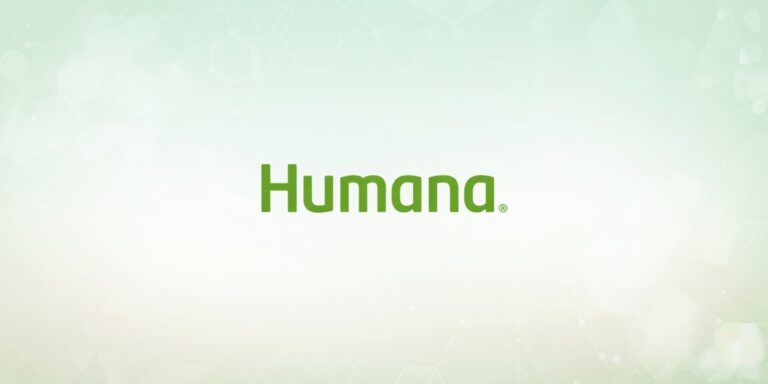
Novartis today announced detailed results from the Phase III APPOINT-PNH trial of investigational oral monotherapy iptacopan in complement-inhibitor-naïve (including anti-C5 therapies) adults with paroxysmal nocturnal hemoglobinuria (PNH)1. The trial met its primary endpoint and demonstrated clinically meaningful benefits across secondary endpoints1. These data were presented at the 49th Annual Meeting of the European Society for Blood and Marrow Transplantation (EBMT).
With iptacopan treatment, an estimated* 92.2% of patients (95% confidence interval [95%CI]: 82.5, 100) achieved a 2 g/dL or more hemoglobin-level increase from baseline without the need for red blood cell transfusions after the 24-week core treatment period1.
“In addition to improvement of hemolysis and fatigue seen on currently available treatments, hemolytic PNH patients treated with iptacopan achieve improvement of anemia never seen before with anti-C5s; these data underscore the potential of iptacopan to be a practice-changing oral medicine for this devastating disease,” explained trial principal co-investigator Antonio Risitano, M.D., Ph.D., President of the International PNH Interest Group and Head of the Hematology and Hematopoietic Transplant Unit, Reference Center for Aplastic Anemia and Paroxysmal Nocturnal Hemoglobinuria at the AORN San Giuseppe Moscati, Avellino, Italy.
Study principal co-investigator Prof Régis Peffault de Latour, MD, PhD of Saint-Louis Hospital, Greater Paris University Hospital added: “The APPOINT-PNH results are consistent with the tolerability and safety profiles seen in APPLY-PNH and show oral iptacopan controls hemolysis while nearly eliminating the need for blood transfusions.”
PNH is a rare, chronic, and serious complement-mediated blood disorder. It has a significant unmet need despite treatment with anti-C5s, as a large proportion of people with PNH remain anemic, fatigued, and dependent on blood transfusions3–6. It is estimated that approximately 10-20 people per million worldwide live with PNH3.
The APPOINT-PNH trial also showed clinically meaningful benefits for secondary endpoints1. An estimated* 62.8% (95%CI: 47.5, 77.5) of patients achieved hemoglobin levels of 12 g/dL or more without the need for red blood cell transfusions1.
“We continue to be impressed by the totality of evidence from APPLY-PNH and APPOINT-PNH, which confirm the practice-changing potential of iptacopan in the treatment of PNH,” said David Soergel, M.D., Global Head, Cardiovascular, Renal and Metabolism Development Unit, Novartis. “We look forward to our first submissions to regulatory authorities for PNH in the first half of this year, and are continuing to progress our iptacopan studies for a range of other complement-mediated diseases, with Phase III results in C3 glomerulopathy and IgA nephropathy anticipated later in the year.”
Importantly, an estimated* 97.6% (95%CI: 92.5, 100) of patients achieved red blood cell transfusion independence at 24 weeks (in contrast, 70% of patients received blood transfusions in the six months prior to treatment)1. No clinical breakthrough hemolysis (BTH) events or major adverse vascular events (MAVEs) were observed during the 24-week trial period1.
Lactate dehydrogenase (LDH) levels decreased by 83.55% (95%CI: −84.90, −82.08) from baseline at 24 weeks, with reductions seen as early as day seven1. At week 24, 95% of patients had LDH levels ≤1.5 times the upper limit of normal (ULN). LDH is a biomarker of intravascular hemolysis (destruction of RBCs within blood vessels) and these results show, when combined with other APPOINT results, iptacopan provided good control of intravascular hemolysis1,3.
Patients also reported clinically meaningful improvements in fatigue, with an adjusted average 10.75 (95%CI: 8.66, 12.84) point increase from baseline in Functional Assessment of Chronic Illness Therapy – Fatigue score, reaching absolute levels similar to those reported in the general population1,7,8.
Iptacopan demonstrated a tolerability and safety profile consistent with previously reported data1,2,9,10. The most commonly reported adverse events (AEs) were infections (in 40.0% of patients, mainly COVID-19 [15.0%] and upper respiratory tract infection [12.5%]), headache (27.5%) and diarrhea (7.5%), with four serious AEs reported1. No patients discontinued iptacopan in the 24-week treatment period1.
Data from the pivotal Phase III APPLY-PNH trial (first reported at ASH 2022) were also presented, which demonstrate the superiority of iptacopan over anti-C5 therapy for the treatment of patients with PNH experiencing residual anemia despite prior anti-C5 therapy2.
*Proportions estimated based on statistical modelling and accounting for missing data1.
About APPOINT-PNH
APPOINT-PNH (NCT04820530) is a Phase III, multinational, multicenter, open-label, single-arm study to evaluate the efficacy and safety of twice-daily, oral iptacopan monotherapy (200 mg) in adult PNH patients who are naïve to complement inhibitor therapy, including anti-C5 therapies (eculizumab or ravulizumab)1,11.
The primary endpoint was to assess the proportion of participants achieving an increase in hemoglobin levels from baseline of 2 g/dL or more in the absence of red blood cell (RBC) transfusions at 24 weeks1,11. Secondary endpoints include the proportion of participants achieving sustained hemoglobin levels of 12 g/dL or more in the absence of RBC transfusions, transfusion independence (defined as the percentage of people who remained free from transfusions), average change in hemoglobin levels, average percent change in lactate dehydrogenase (LDH) levels, rate of breakthrough hemolysis, average change in absolute reticulocyte counts, change in fatigue, and rates of major adverse vascular events1,11.
The trial enrolled 40 patients who received twice-daily, oral iptacopan monotherapy1,11.
About APPLY-PNH
APPLY-PNH (NCT04558918) is a Phase III, randomized, multinational, multicenter, active-comparator controlled, open-label trial to evaluate the efficacy and safety of twice-daily, oral iptacopan monotherapy (200 mg) for the treatment of PNH by demonstrating the superiority of iptacopan compared to anti-C5 therapies (eculizumab or ravulizumab) in adult patients presenting with residual anemia despite a stable regimen of anti-C5 treatment in the last six months prior to randomization2,12.
One primary endpoint was to assess the percentage of patients achieving an increase in hemoglobin levels from baseline of 2 g/dL or more in the absence of RBC transfusions at 24 weeks2,12. Another primary endpoint was to assess the percentage of participants achieving sustained hemoglobin levels of 12 g/dL or more in the absence of RBC transfusions at 24 weeks2,12. Secondary endpoints include percentage of participants who remain free from transfusions, average change in hemoglobin levels, change in fatigue, average change in absolute reticulocyte counts, average percent change in LDH levels, rate of breakthrough hemolysis, and rates of major adverse vascular events2,12.
The trial enrolled 97 patients who were randomized in an 8:5 ratio to either twice-daily, oral iptacopan monotherapy, or intravenous anti-C5 therapies (continuing with the same regimen as they were on prior to randomization)2,12.
About paroxysmal nocturnal hemoglobinuria (PNH)
PNH is a rare, chronic and serious complement-mediated blood disorder3. People with PNH have an acquired mutation in some of their hematopoietic stem cells (which are located in the bone marrow and can grow and develop into RBCs, white blood cells and platelets) that causes them to produce RBCs that are susceptible to premature destruction by the complement system3,4. This leads to intravascular hemolysis (destruction of RBCs within blood vessels) and extravascular hemolysis (destruction of RBCs mostly in the spleen and liver), which cause anemia (low levels of circulating RBCs), thrombosis (formation of blood clots), fatigue and other debilitating symptoms that can impact people’s quality of life3,4.
It is estimated that approx. 10-20 people per million worldwide live with PNH3. Although PNH can develop at any age, it is often diagnosed in people between 30-40 years old13,14.
PNH has a significant unmet need not addressed by anti-C5 therapies (eculizumab or ravulizumab): despite treatment with anti-C5s, a large proportion of people with PNH remain anemic, fatigued, and dependent on blood transfusions3–6.
About iptacopan
Iptacopan is an investigational first-in-class, orally administered targeted factor B inhibitor of the alternative complement pathway1,2,9,10,15. It acts upstream of the C5 terminal pathway, preventing not only intravascular but also extravascular hemolysis in PNH1,2,9,10,15. In doing so, iptacopan targets a key part of the biology responsible for PNH while offering an oral monotherapy option1,2,9,10,15.
Discovered at the Novartis Institutes for BioMedical Research, iptacopan is currently in development for a number of other complement-mediated diseases (CMDs) where significant unmet needs exist, including kidney diseases C3 glomerulopathy (C3G), IgA nephropathy (IgAN), atypical hemolytic uremic syndrome (aHUS), lupus nephritis (LN), and blood disorders immune thrombocytopenic purpura (ITP) and cold agglutinin disease (CAD). First results for Phase III trials in C3G (APPEAR-C3G) and IgAN (APPLAUSE-IgAN) are expected in H2 202316,17.
Based on disease prevalence, unmet needs and data from Phase II studies, iptacopan has received FDA Breakthrough Therapy Designation in PNH, orphan drug designations from the FDA and EMA in PNH and C3G, EMA PRIME designation for C3G, and EMA orphan drug designation in IgAN18-21.
Disclaimer
This press release contains forward-looking statements within the meaning of the United States Private Securities Litigation Reform Act of 1995. Forward-looking statements can generally be identified by words such as “potential,” “can,” “will,” “plan,” “may,” “could,” “would,” “expect,” “anticipate,” “seek,” “look forward,” “believe,” “committed,” “investigational,” “pipeline,” “launch,” or similar terms, or by express or implied discussions regarding potential marketing approvals, new indications or labeling for the investigational or approved products described in this press release, or regarding potential future revenues from such products. You should not place undue reliance on these statements. Such forward-looking statements are based on our current beliefs and expectations regarding future events, and are subject to significant known and unknown risks and uncertainties. Should one or more of these risks or uncertainties materialize, or should underlying assumptions prove incorrect, actual results may vary materially from those set forth in the forward-looking statements. There can be no guarantee that the investigational or approved products described in this press release will be submitted or approved for sale or for any additional indications or labeling in any market, or at any particular time. Nor can there be any guarantee that such products will be commercially successful in the future. In particular, our expectations regarding such products could be affected by, among other things, the uncertainties inherent in research and development, including clinical trial results and additional analysis of existing clinical data; regulatory actions or delays or government regulation generally; global trends toward health care cost containment, including government, payor and general public pricing and reimbursement pressures and requirements for increased pricing transparency; our ability to obtain or maintain proprietary intellectual property protection; the particular prescribing preferences of physicians and patients; general political, economic and business conditions, including the effects of and efforts to mitigate pandemic diseases such as COVID-19; safety, quality, data integrity or manufacturing issues; potential or actual data security and data privacy breaches, or disruptions of our information technology systems, and other risks and factors referred to in Novartis AG’s current Form 20-F on file with the US Securities and Exchange Commission. Novartis is providing the information in this press release as of this date and does not undertake any obligation to update any forward-looking statements contained in this press release as a result of new information, future events or otherwise.
About Novartis
Novartis is reimagining medicine to improve and extend people’s lives. We deliver high-value medicines that alleviate society’s greatest disease burdens through technology leadership in R&D and novel access approaches. In our quest to find new medicines, we consistently rank among the world’s top companies investing in research and development. About 103,000 people of more than 140 nationalities work together to bring Novartis products to nearly 800 million people around the world.
References
1. Risitano AM, Han B, Ueda Y, et al. Oral Complement Factor B Inhibitor Iptacopan Monotherapy Improves Hemoglobin to Normal/Near-Normal Levels in Paroxysmal Nocturnal Hemoglobinuria Patients Naïve to Complement Inhibitors: Phase III APPOINT-PNH Trial. Presented at: 49th Annual Meeting of the European Society for Blood and Marrow Transplantation (EBMT); April 23-36, 2023; Paris, France.
2. Risitano AM, Rӧth A, Kulasekararaj A, et al. Oral Iptacopan Monotherapy Has Superior Efficacy to Anti-C5 Therapy in Patients with Paroxysmal Nocturnal Hemoglobinuria and Residual Anemia: Results From the Phase III APPLY-PNH Study. Presented at: 49th Annual Meeting of the European Society for Blood and Marrow Transplantation (EBMT); April 23-36, 2023; Paris, France.
3. Cançado RD, Araújo A da S, Sandes AF, et al. Consensus statement for diagnosis and treatment of paroxysmal nocturnal haemoglobinuria. Hematol Transfus Cell Ther. 2021;43(3):341-348. doi:10.1016/j.htct.2020.06.006
4. Dingli D, Matos JE, Lehrhaupt K, et al. The burden of illness in patients with paroxysmal nocturnal hemoglobinuria receiving treatment with the C5-inhibitors eculizumab or ravulizumab: results from a US patient survey. Ann Hematol. 2022;101(2):251-263. doi:10.1007/s00277-021-04715-5
5. Debureaux PE, Kulasekararaj AG, Cacace F, et al. Categorizing hematological response to eculizumab in paroxysmal nocturnal hemoglobinuria: a multicenter real-life study. Bone Marrow Transplant. 2021;56(10):2600-2602. doi:10.1038/s41409-021-01372-0
6. Debureaux PE, Cacace F, Silva BGP, et al. Hematological Response to Eculizumab in Paroxysmal Nocturnal Hemoglobinuria: Application of a Novel Classification to Identify Unmet Clinical Needs and Future Clinical Goals. Blood. 2019;134(Supplement_1):3517-3517. doi:10.1182/blood-2019-125917
7. Montan I, Löwe B, Cella D, Mehnert A, Hinz A. General Population Norms for the Functional Assessment of Chronic Illness Therapy (FACIT)-Fatigue Scale. Value Health. 2018;21(11):1313-1321. doi:10.1016/j.jval.2018.03.013
8. Cella D, Lai JS, Chang CH, Peterman A, Slavin M. Fatigue in cancer patients compared with fatigue in the general United States population. Cancer. 2002;94(2):528-538. doi:10.1002/cncr.10245
9. Risitano AM, Röth A, Soret J, et al. Addition of iptacopan, an oral factor B inhibitor, to eculizumab in patients with paroxysmal nocturnal haemoglobinuria and active haemolysis: an open-label, single-arm, phase 2, proof-of-concept trial. Lancet Haematol. 2021;8(5):e344-e354. doi:10.1016/S2352-3026(21)00028-4
10. Jang JH, Wong L, Ko BS, et al. Iptacopan monotherapy in patients with paroxysmal nocturnal hemoglobinuria: a 2-cohort open-label proof-of-concept study. Blood Adv. 2022;6(15):4450-4460. doi:10.1182/bloodadvances.2022006960
11. Novartis Pharmaceuticals. A Multicenter, Single-Arm, Open-Label Trial to Evaluate Efficacy and Safety of Oral, Twice Daily Iptacopan in Adult PNH Patients Who Are Naive to Complement Inhibitor Therapy. clinicaltrials.gov; 2022. Accessed September 21, 2022. https://clinicaltrials.gov/ct2/show/NCT04820530
12. Novartis Pharmaceuticals. A Randomized, Multicenter, Active-Comparator Controlled, Open-Label Trial to Evaluate Efficacy and Safety of Oral, Twice Daily LNP023 in Adult Patients With PNH and Residual Anemia, Despite Treatment With an Intravenous Anti-C5 Antibody. clinicaltrials.gov; 2022. Accessed September 21, 2022. https://clinicaltrials.gov/ct2/show/NCT04558918
13. Hill A, DeZern AE, Kinoshita T, Brodsky RA. Paroxysmal nocturnal haemoglobinuria. Nat Rev Dis Primer. 2017;3(1):17028. doi:10.1038/nrdp.2017.28
14. Schrezenmeier H, Röth A, Araten DJ, et al. Baseline clinical characteristics and disease burden in patients with paroxysmal nocturnal hemoglobinuria (PNH): updated analysis from the International PNH Registry. Ann Hematol. 2020;99(7):1505-1514. doi:10.1007/s00277-020-04052-z
15. Schubart A, Anderson K, Mainolfi N, et al. Small-molecule factor B inhibitor for the treatment of complement-mediated diseases. Proc Natl Acad Sci. 2019;116(16):7926-7931. doi:10.1073/pnas.1820892116
16. Novartis Pharmaceuticals. A Multicenter, Randomized, Double-Blind, Parallel Group, Placebo-Controlled Study to Evaluate the Efficacy and Safety of Iptacopan (LNP023) in Complement 3 Glomerulopathy. clinicaltrials.gov; 2022. Accessed September 20, 2022. https://clinicaltrials.gov/ct2/show/NCT04817618
17. Novartis Pharmaceuticals. A Multi-Center, Randomized, Double-Blind, Placebo-Controlled, Parallel Group, Phase III Study to Evaluate the Efficacy and Safety of LNP023 in Primary IgA Nephropathy Patients. clinicaltrials.gov; 2022. Accessed September 21, 2022. https://clinicaltrials.gov/ct2/show/NCT04578834
18. Novartis investigational oral therapy iptacopan (LNP023) receives FDA Breakthrough Therapy Designation for PNH and Rare Pediatric Disease Designation for C3G. Novartis. Accessed September 22, 2022. https://www.novartis.com/news/media-releases/novartis-investigational-oral-therapy-iptacopan-lnp023-receives-fda-breakthrough-therapy-designation-pnh-and-rare-pediatric-disease-designation-c3g
19. Novartis data on file.
20. Novartis announces European Medicines Agency (EMA) has granted orphan drug designation for iptacopan (LNP023) in IgA nephropathy (IgAN). Novartis. Accessed September 22, 2022. https://www.novartis.com/news/media-releases/novartis-announces-european-medicines-agency-ema-has-granted-orphan-drug-designation-iptacopan-lnp023-iga-nephropathy-igan
21. Novartis received European Medicines Agency (EMA) PRIME designation for iptacopan (LNP) in C3 glomerulopathy (C3G). Novartis. Accessed September 22, 2022. https://www.novartis.com/news/media-releases/novartis-received-european-medicines-agency-ema-prime-designation-iptacopan-lnp-c3-glomerulopathy-c3g
Source: https://www.novartis.com/




